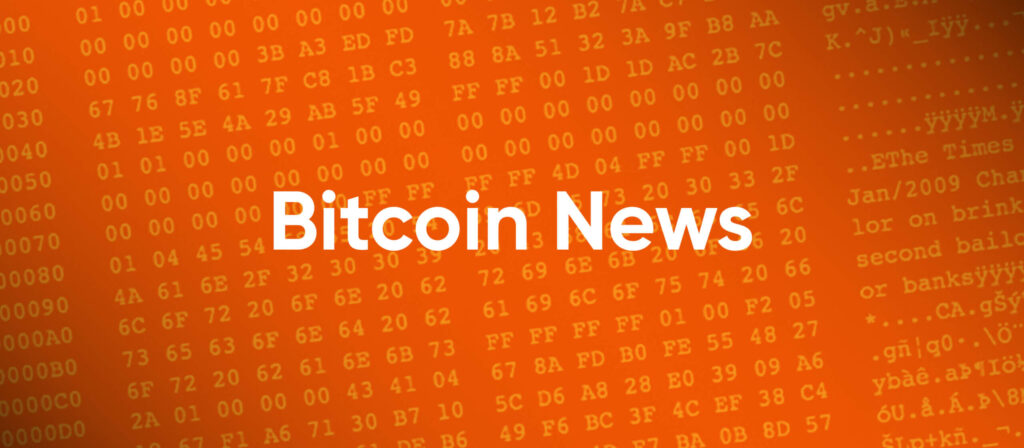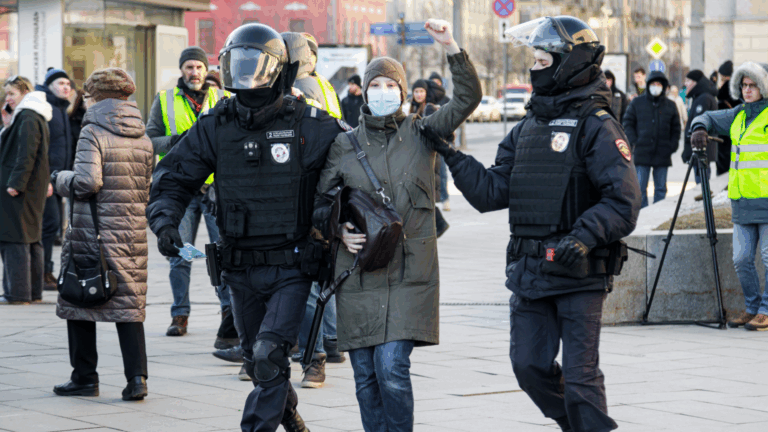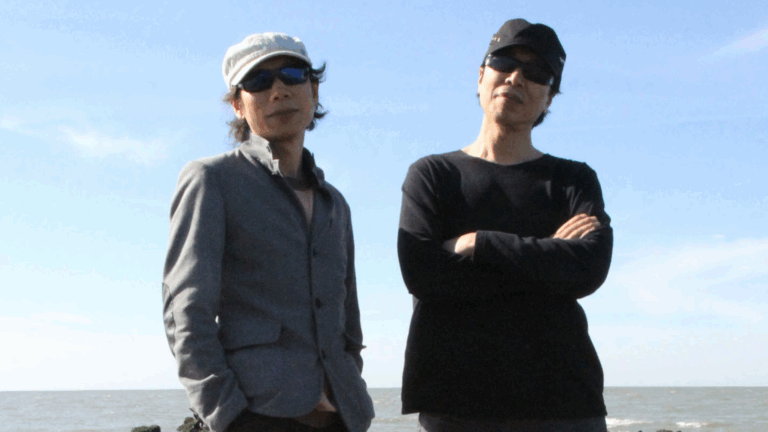The Financial Freedom Report is a newsletter focusing on the role currency and banking play in the civil liberties and human rights struggles of those living under authoritarian regimes. We also spotlight new tools and applications that can help individuals protect their financial freedom.
Good morning, readers!
This past week, Russian officials detained a Russian-American woman for the “crime” of donating $51.80 to a pro-Ukraine charity. Meanwhile, in China, the regime renamed over 600 villages significant to the Uyghur Muslim minority group in its efforts to further erase Uyghur cultural identity. The Chinese Communist Party (CCP) also continues to confiscate Uyghur assets and restrict their banking services.
On the bright side, the Human Rights Foundation (HRF) celebrated the reversal of the death sentence of Iranian rapper Toomaj Salehi, who had been jailed for writing music inspired by the “Women, Life, Freedom” protests that continue across Iran. The crackdown on activists like Salehi comes just as the regime is using high-tech surveillance to freeze the bank accounts of women who don’t wear the hijab. Oslo Freedom Forum speaker and WikiLeaks founder Julian Assange was also released from Belmarsh maximum security prison in the United Kingdom and accepted a plea deal in order to return to his family in Australia. Bitcoin has famously played a key role in keeping WikiLeaks going, despite many attempts at freezing the ability of donors to contribute to its work.
In open-source software news, a Bitcoin-native rollup design was introduced, enabling new possibilities for decentralized finance without altering Bitcoin’s protocol. Enhancements in financial privacy are also on the rise with the introduction of an Electrum plugin for Joinstr, a CoinJoin implementation with the Nostr protocol. Additionally, an upcoming Bitcoin meetup in Thailand aims to help millions of bankless Burmese refugees rebuild their lives with Bitcoin.
Lastly, our featured article explores how pro-democracy activists in Nicaragua, like Félix Maradiaga, are using Bitcoin as a tool to circumvent dictator Daniel Ortega’s financial repression. Stay tuned to find out why.
Now, let’s dive right in!

Russia | Woman On Trial for Pro-Ukraine Donation
During a family visit in Yekaterinburg, Russia, Ksenia Karelina, a Russian-American ballerina who lives in Los Angeles, Calif., was arrested by Russian authorities. Her crime? Making a $51.80 donation to a pro-Ukraine charity is deemed an act of treason under Russian law. Her trial will be held in August. If found guilty, she faces a potential 20-year prison sentence. Karelina’s case illustrates the severe measures dictator Vladimir Putin enforces against any form of financial aid, even modest amounts, to opposition movements. It highlights why Russian human rights groups like the Anti-Corruption Foundation have found it useful to receive payments in Bitcoin to help protect the identities of their donors.
China | Cultural & Financial Repression Against Minority Group
Chinese officials renamed at least 630 villages in the Uyghur Region. The original names, rich with religious, historical, and cultural significance to Uyghurs (a Muslim, non-Han minority group), were replaced with names like “happiness,” “unity,” and “harmony.” These changes occurred under China’s authoritarian regime, where Uyghurs face arbitrary detention, torture, mass surveillance, forced labor, and violations of reproductive rights. The Chinese regime also regularly confiscates Uyghur assets, including property and savings. It imposes stringent regulations and frequent inspections on Uyghur businesses under the pretext of security and puts pressure on banks serving Uyghur clients, acting as a reminder that state-controlled money isn’t meeting the needs of billions of people worldwide.
Sudan | Ongoing Conflict Drives Displacement, Hunger, and Financial Crisis
The conflict between Sudan’s military, the Sudanese Armed Forces (SAF), and the paramilitary, the Rapid Support Forces (RSF), has created the world’s largest humanitarian crisis. Over 10 million Sudanese have been displaced, with millions fleeing to South Sudan and Uganda. Aid corridors are blocked, causing “catastrophic levels of hunger.” Many banks have closed, making cash access difficult. Recurring Internet blackouts have halted digital money transfers and remittances. “This also means the population is unable to receive money from their families or from abroad via mobile money transfers,” Hamid Khalafallah, a Sudanese policy analyst, said. In Uganda, Sudanese refugees lacking proper identification are unable to open bank accounts. As a result, they face high levels of unemployment and homelessness. To tackle this issue, the Bitcoin Innovation Hub, a local organization in Uganda supported by HRF, is educating Sudanese refugees about Bitcoin. Their hope is to give Sudanese refugees an opportunity to rebuild their lives with global, digital, and permissionless money that cannot be taken away from them.
United Kingdom | WikiLeaks Founder Now Free
WikiLeaks founder Julian Assange was freed from the UK’s high-security Belmarsh prison following 1,901 days of detention after agreeing to plead guilty to a charge of breaching the espionage law in the United States. Assange rose to prominence with the launch of WikiLeaks, an online whistleblower platform for people to anonymously submit classified material on government corruption and human rights abuses. In response, various governments pressured financial institutions — like PayPal, Visa, and Mastercard — to cut off services and halt all transactions and donations involving WikiLeaks. To circumvent the financial blockade, in 2011, WikiLeaks began accepting Bitcoin donations. The Assange family credits the open source currency for critical support during times when they needed it most.
Syria | Repatriated Refugees Face Financial Repression
A new report by the Syrian Network for Human Rights (SNHR) revealed that Bashar al-Assad’s regime detained 4,714 refugees upon their return to Syria. These detentions are occurring amid a rise in forcible returns from Lebanon and Turkey. The SNHR says that the “refoulement of refugees and the forced repatriation of Syrian refugees constitute blatant violations of customary international law.” It argues that governments that force Syrian refugees to return are legally responsible if they are tortured, killed, or forcibly disappeared by Assad’s regime. Assad’s regime has imposed severe financial repression on its people, including controlling the flow of money, limiting withdrawals from banks, manipulating the currency, restricting currency exchange, and enforcing stringent controls on foreign currency. These measures devastated the economy, prevented businesses from surviving, and left citizens without access to their funds during wartime. With international money transmitters like Western Union and PayPal ceasing operations, Syrians find themselves financially asphyxiated with no way out.
Belarus | Politician & Journalist Sentenced in Absentia
On June 20, Franak Viačorka, a Belarusian politician and journalist, announced that Alexander Lukashenko’s “court” sentenced him to 20 years in prison, in absentia. The reasons for his imprisonment include “insulting Lukashenko” as well as other fabricated accusations. “It was not a trial, but a farce,” Viačorka said. On the same day, a Serbian court ruled that Andrei Gnyot, a Belarusian activist, could be extradited to Belarus, demonstrating Lukashenko’s international reach. Under Lukashenko, human rights defenders, lawyers, and civil society organizations often become targets of financial repression. Financial institutions often restrict services to opposition members and dissidents, denying loans and freezing their bank accounts. This systemic financial repression is part of a broader strategy to stifle dissent and maintain control.

Brollups | Bitcoin-Native Rollup Design
Burak, the creator of Ark, a second-layer solution for scaling Bitcoin, introduced Brollups. He defines them as a “Bitcoin-native rollup design that works with a native Bitcoin peg and does not require any changes to the Bitcoin protocol.” Brollups are proposed to be managed by operators who provide liquidity and use a custom Bitcoin Virtual Machine (BVM) to execute transactions and smart contracts. Brollups also operate with virtual UTXOs (VTXOs) and call data containing the necessary instructions for smart contracts to execute. This would enable Bitcoin to maintain its decentralized nature while managing more complex financial transactions that meet various user needs. For Burak, Brollups could enable the native support of decentralized applications on Bitcoin, such as decentralized exchanges, enhancing Bitcoin’s functionalities and scalability. Although Brollups sound promising, they are currently in the design phase. If this is something you’re interested in contributing to, you can join the Telegram channel here.
PSBTs for Silent Payments | Discussions Continue
Developers are considering enhancing Bitcoin transaction privacy by “adding support for coordinating the sending of silent payments using PSBTs (Partially Signed Bitcoin Transactions),” according to the Bitcoin Optech newsletter. A PSBT is a Bitcoin standard that easily allows different wallets to sign a Bitcoin transaction. The ability to coordinate silent payments using PSBTs can help ensure that transaction details of the sender and recipient remain confidential, which is crucial for activists in situations where anonymity is necessary to safeguard their operations, safety, and security. Though the developers are in agreement on this approach, we continue to await further discussions on PSBTs for silent payments.
Joinstr | Electrum Plugin Now Available
Users can now also improve their transaction privacy by plugging their Electrum wallet into Joinstr, a CoinJoin implementation using the Nostr protocol. Nostr facilitates a global, decentralized network for social media and communication and is censorship-resistant. This decentralization allows users to broadcast and discover CoinJoin transactions without depending on any central server, boosting privacy and reducing censorship risks. The new plugin not only obscures Bitcoin transactions directly within the Electrum interface but also eliminates the need for additional software. A step-by-step tutorial on Substack guides users through downloading the plugin and setting up the necessary configurations to get started. Once installed, users can initiate CoinJoin transactions directly from their Electrum wallet. Innovations like this plugin help protect a user’s financial privacy and make it accessible to more users.
LDK Release | Adds BOLT12 Support
The Lightning Development Kit (LDK), a project-building tool and library that makes it easy to build your own Lightning wallet and integrate Lightning features, announced that LDK Node v0.3.0 is here. The new release includes bug fixes and introduces new functionality, including support for BOLT12 payments. BOLT12 is a new payment protocol designed to increase privacy, security, and usability in the Lightning Network. It enables reusable payment requests, refunds, increased privacy, and censorship resistance. BOLT12 achieves this by using offers, which are precursors to an invoice, contain less data than an invoice, and are smaller to display as a QR code. Offers may also contain blinded paths, which help ensure privacy for both the sender and receiver of a payment. Through the inclusion of BOLT12 support, LDK allows users to experiment with building their applications or add BOLT12 support to LND, such as the LNDK. This will be important for powering private and uncensorable transactions for activists, merchants, and organizations under authoritarian regimes.
Event | First Bitcoin Burmese Meetup in Thailand
Over 10 million Burmese refugees reside in Thailand, with most of them living in Bangkok. Fleeing from Burma’s military dictatorship, refugees arrive without their savings. They face significant obstacles in opening bank accounts due to their lack of documentation and legal status. To address this issue, Win Ko Ko Aung, a Burmese democracy activist in exile and HRF intern, has partnered with BOB Space, a co-working and educational space in Bangkok and past HRF grantee, to host the first Burmese Bitcoin meetup in Thailand. On July 5, Aung will teach Burmese refugees how to use Bitcoin to restart their financial lives in Thailand. “It is not going to be easy,” he said, but remains dedicated to bringing financial freedom to his fellow Burmese.
OpenSats | Long-Term Support for Calle & William Casarin
OpenSats, a public charity funding Bitcoin-related free and open-source projects, announced its long-term support (LTS) for Calle and William Casarin. Calle, the creator of Cashu, a free and open-source Chaumian Ecash protocol, will use the grant to enhance the protocol’s robustness and performance. He will also introduce a fee structure to prevent denial of service attacks, implement a proof-of-liabilities scheme for auditing mints, and improve the “multinut payments” concept for better use of smaller Ecash balances. William Casarin, the creator of the Damus app and a prolific contributor to the Nostr ecosystem, will use the funding to advance the Nostr ecosystem through projects like NostrDB and upgrading Damus iOS, Notedeck, and Notecrumbs. These grants should help advance financial freedom, freedom of speech, and the open-source space overall.
Recommended Content
Bitcoin’s Role in Defending Democracy in Nicaragua with Félix Maradiaga
Pro-democracy activists in Nicaragua are increasingly facing financial repression at the hands of the country’s dictator, Daniel Ortega. “Imagine a country in which you could go to prison for raising the national flag, for tweeting, for receiving a remittance from an international donor, or for expressing your opinions on social media,” Félix Maradiaga, a pro-democracy activist, said. Maradiaga, now working to rebuild the democratic opposition in Nicaragua from abroad, advocates for the use of Bitcoin to circumvent the financial repression employed by the Ortega regime. He explains how dictators worldwide collaborate and learn from each other to enforce financial repression. “Bitcoin is the only tool that is bulletproof against financial repression from dictators,” Maradiaga said. This article outlines how Bitcoin is being used to combat financial repression and support the global fight against dictatorships.
Bitcoin 2024 Conference | Apply for a Complimentary Open Source Contributor Ticket
HRF and BTC Inc. have partnered to offer complimentary passes to open-source software developers who have contributed to the Bitcoin ecosystem for the Bitcoin 2024 conference, scheduled to take place July 25–27 in Nashville, Tn. If you made a commit before May 1, 2024, we invite you to apply for our Open Source Contributor Complimentary Ticket Program to receive a complimentary three-day pass to the conference. To apply, fill out the Typeform application here, submit an issue to this repo, and explain why you are excited to attend. HRF and BTC Inc. will review submissions and send out e-tickets over the next month. We look forward to seeing you there.
If this email was forwarded to you and you enjoyed reading it, please consider subscribing to the Financial Freedom Report here.
Support the newsletter by donating bitcoin to HRF’s Financial Freedom program via BTCPay.
Want to contribute to the newsletter? Submit tips, stories, news, and ideas by emailing [email protected].
Purchase your ticket to the 2024 Oslo Freedom Forum, taking place June 3-5 in Oslo, Norway. Use the code 2024OFF to get an early bird discount.
The Bitcoin Development Fund (BDF) is accepting grant proposals on an ongoing basis. The Bitcoin Development Fund is looking to support Bitcoin developers, community builders, and educators. Submit proposals here.







